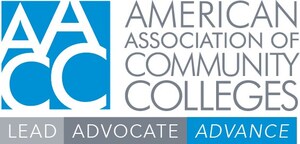
New Credentialing Initiative
Twenty community colleges will work to unify the credentialing system
WASHINGTON, March 10, 2016 /PRNewswire-USNewswire/ -- The American Association of Community Colleges (AACC) is proud to announce the Right Signals initiative. Supported by a grant from Lumina Foundation, the Right Signals will identify and develop a model for recognizable credentialing that may be utilized by students, colleges, and employers nationally.
"Students have many avenues to achieve the skills necessary for obtaining well-paying jobs in the current economy," said Holly Zanville, strategy director at Lumina Foundation. "It is critical that these skills and credentials are universally recognizable to students, colleges, and employers."
The highly diverse credentialing marketplace includes educational degrees and certificates, professional and industry certifications, apprenticeship certificates, digital badges and other micro-credentials, and licenses to practice. In different ways, each of these items attests to what people know and are able to do.
Walter G. Bumphus, AACC's president and chief executive officer notes the importance of the effort. "Credentials and acquired skills are valuable to both students and employers," stated Bumphus. "This work has the potential to provide a national system of recognizable credentials across all sectors and users making it possible to quickly identify completed courses of study, learned skills, skill mastery, continuing education credits, and other types of credentials."
Some students enter the workforce with credentials obtained online and/or in-person at other colleges, the workplace, high schools, IT boot camps, the military, community-based and other organizations. Some community college students begin in a non-credit program, earning an occupational certificate or industry certification, with interest in transferring to credit-bearing courses. In short, community colleges must operate in the highly diversified and constantly adapting intersection of their students' varied credentialing pathways.
The purpose of the Right Signals initiative is to demonstrate a new credentialing model that recognizes multiple quality credentials to send "the right signals" to employers, students, and colleges about the meaning of these credentials. Key credentials to be targeted are degrees, certificates, industry certifications, apprenticeships, and badges.
Colleges selected to participate are College of Lake County (Ill.), Columbus State Community College (Ohio), Community College of Baltimore County (Md.), Eastern Iowa Community College, Gateway Community and Technical College (Ky.), Gateway Technical College (Wis.), Kirkwood Community College (Iowa), LaGuardia Community College (N.Y.), Lone Star College (Texas), Madison Area Technical College (Wis.), Metropolitan Community College (Mo.), Miami Dade College (Fla.), Mid Michigan Community College, Mississippi Gulf Coast Community College, North Central State College (Ohio), Polk State College (Fla.), Rio Salado College (Ariz.), Snead State Community College (Ala.), South Seattle College (Wash.) and South Central College (Minn.).
As the voice of the nation's community colleges, the American Association of Community Colleges (AACC) delivers educational and economic opportunity for 13 million diverse students in search of the American Dream. Uniquely dedicated to access and success for all students, AACC's member colleges provide an on-ramp to degree attainment, skilled careers and family-supporting wages. Located in Washington, D.C., AACC advocates for these not-for-profit, public-serving institutions to ensure they have the resources and support they need to deliver on the mission of increasing economic mobility for all.
SOURCE American Association of Community Colleges





Share this article